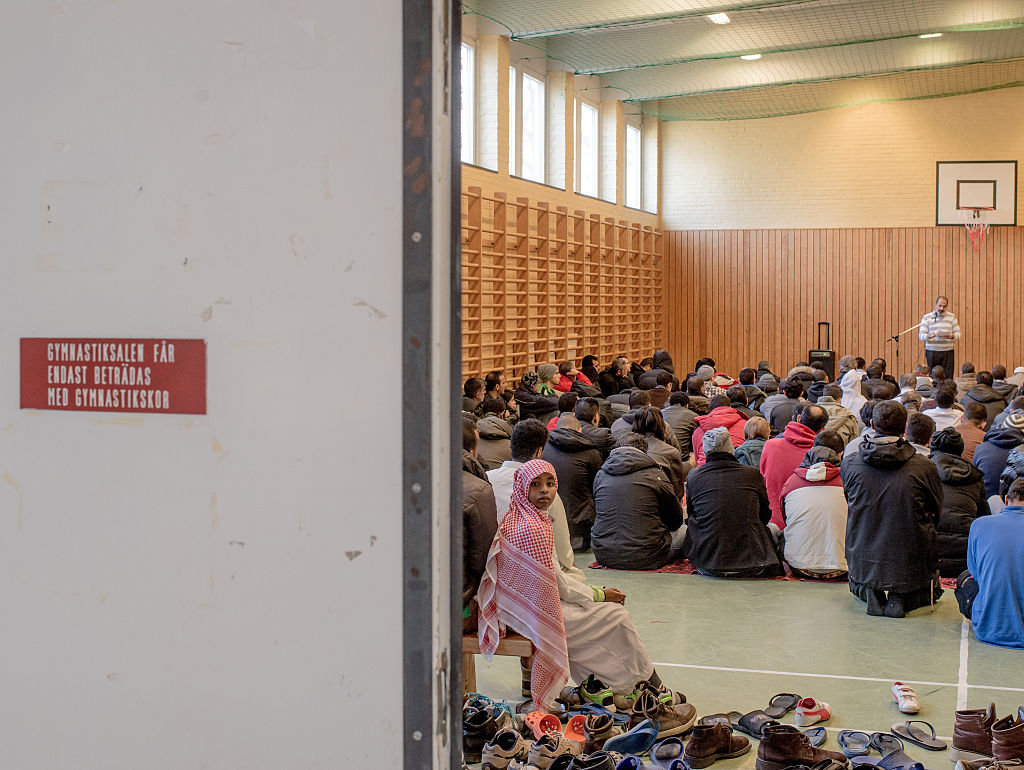“As long as our Government does not change German migration policies there seem to be no real limits to the growth of right-wing populism.”
So said Werner Patzelt, the former professor for political systems and system comparison at TU Dresden and current research director at MCC Brussels. He told Brussels Signal in January that immigration represented one of the most important issues for Germans in the run-up to the European Elections.
Such a claim seems to be reflected in nationwide polling. An INSA survey conducted in December found more than half of the country wants to see authorities “take action” to stem the inflow.
This puts the immigration issue at a similar level of public importance as solving Germany’s energy crisis in the minds of the country’s voters.
Despite such a significant concern, mainstream politicians seem hesitant to act to curb immigration. In fact, many of Germany’s leading ministers are calling for migration numbers into the country to be increased.
WATCH: Professor @WernerPatzelt says it would be a "big surprise" if the @AfD failed to make huge gains in the upcoming EU elections as it gives a voice to those disillusioned with Germany's political class.
Watch the full interview here: https://t.co/TilEsTOEhk @MCC_Brussels pic.twitter.com/aEjrscvQUJ
— Brussels Signal (@brusselssignal) January 25, 2024
Why? According to these politicians, Germany requires more migrants just to stay afloat economically.
“We urgently need more skilled workers,” the country’s Vice Chancellor and Minister for Economic Affairs Robert Habeck said last year.
The main issue facing Germany in this regard has been demographics. With a rapidly ageing population, businesses are struggling more and more to find suitable employees.
At the same time, politicians are growing more concerned that the dwindling number of young Germans means Berlin will increasingly struggle to prop up the country’s sizeable welfare state.
As such, the Government feels that larger numbers of immigrants – many of whom would come from developing countries – is the only solution to this growing problem.
So how many more foreign arrivals does Germany need? Officials and academics alike seemed to settle at around 1.5 million per year.
“Germany needs 1.5 million immigrants a year if we want to have 400,000 new citizens every year, minus the considerable emigration, and thus maintain the number of workers,” University of Munich professor Monika Schnitzer told Sueddeutsche Zeitung.
The tutor, referred to only as “Myriam K”, had criticised Germany’s migration policies and Covid-19 measures on a private YouTube channel. https://t.co/TGWYgvNXBp
— Brussels Signal (@brusselssignal) July 31, 2023
The academic added that, to meet such a figure, Germany would need to make certain social sacrifices. For example, she argued, the country could not afford to insist that prospective migrants speak German.
Instead, Schnizter suggested making sure a prospective arrival could speak English and that should be seen as enough for migrants looking to enter certain professions.
Such calls for even more migration into Germany are far from uncontroversial especially in the wake of the 2015-2016 migrant crisis when more than 1 million migrants, many of them Syrians escaping civil war, reached the country.
One study published in January this year, for example, claimed the high level of low-skilled mass migration into Germany has burdened, not benefited, the country’s economy.
Explaining the paper, Professor Bernd Raffelhüschen of the University of Freiburg warned that such influxes could cost the country trillions of euros in the coming years, and would only hasten Germany’s economic decline.
“If we carry on as before, we would be as dumb as a rock,” he told Bild Zeitung, arguing that if the country’s politicians wanted economic benefit, they could only allow in those with the skills to benefit Germany.
Some on the Right of the political spectrum are against allowing high levels of migration into the country regardless of whether the arrivals are skilled or unskilled.
VIDEO: If the EU doesn't put an end to immigration "everything else is done", AfD MEP @KrahMax said during an interview in the Brussels Signal studio.
Full vid: https://t.co/GGMIjk8DEl pic.twitter.com/dVsUBJluOl
— Brussels Signal (@brusselssignal) October 19, 2023
Speaking to Brussels Signal, MEP Maximilian Krah – the Alternative für Deutschland (AfD) party lead candidate for the European Parliament elections in June – argued that the importation of millions more immigrants into Germany would render politics itself pointless.
“If we don’t stop migration, then everything else is done,” he said.
Krah argued that permitting such large-scale immigration into either Germany or Europe as a whole would fundamentally change the character of both.
“There is a German, you can say, proverb: ‘If you allow half of Kolkata to immigrate, you don’t save Kolkata, but you become a second Kolkata’,” he said.
“We have to stop it. We have to stop it immediately,” he continued, adding that the EU needed to start thinking about “remigration” policies aimed at shifting arrivals out of Europe and back to their countries of origin.
“There’s so many people here that will not succeed, that will never integrate, that are just here taking welfare and becoming radicals,” Krah claimed.
That message has found favour with many in the country. While talk of remigration by the AfD has recently prompted nationwide protests, the party enjoys widespread support among the public, with the its current polling approval rate floating around 20 per cent.
Parties pushing for more migration have been haemorrhaging support. The ruling Greens, the Social Democratic Party and Free Democratic Party are all losing out to populists on both the Left and Right.
This shift away from the ruling centre-left is expected to have knock-on effects in Brussels. The AfD’s Identity and Democracy Group is expected to become the third-most prominent in the hemicycle come the next legislative period.
VIDEO: Germany’s populist Alternative für Deutschland (AfD) party will NOT be banned despite threats from the Government, German political expert Professor Werner J Patzelt tells us in an exclusive interview. https://t.co/jc3VNsucU1
— Brussels Signal (@brusselssignal) January 24, 2024





If mainstream German politics fragments further, would it help the CDU?